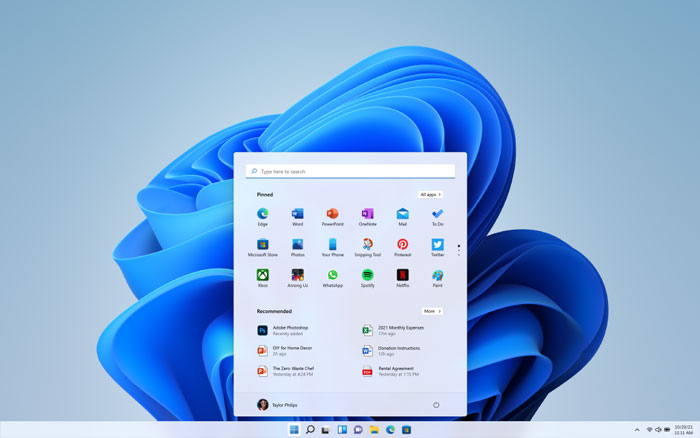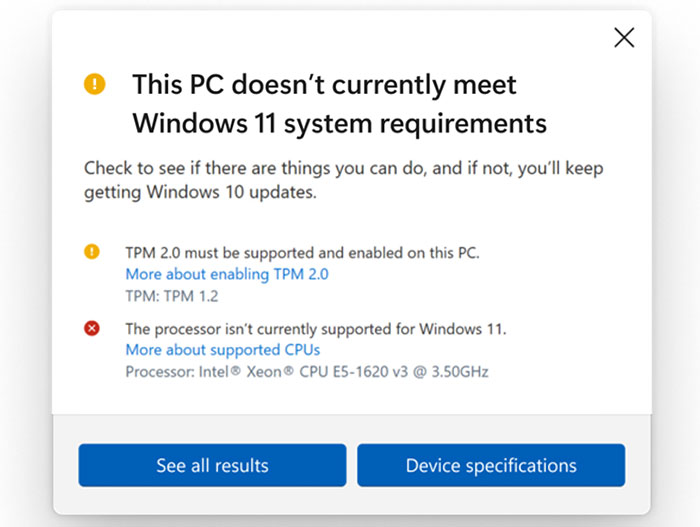On Friday, Microsoft published an update on Windows 11 minimum system requirements. It also released a new version of the PC Health Check (upgrade advisory) app for Windows Insiders. The information in the article was quite straightforward: it was helping a few older Intel CPUs over the minimum bar; and the new Health Check app would be fully up-to-date with the latest minimum specs, informative, and helpful in its feedback.

Continuing with the official Microsoft Windows Insider information that was revealed by the blog, the following Intel processors would be added to the approved list of 64-bit processors:
- Intel Core X-series
- Intel Xeon W-series
- Intel Core 7820HQ (only select devices that shipped with modern drivers based on Declarative, Componentized, Hardware Support Apps (DCH) design principles, including Surface Studio 2).
Microsoft noted that it had looked carefully at first gen AMD Zen processors, but they still didn't make the grade. It then re-iterated its Windows 11 design goals of reliability, security, and compatibility (twice) to back up its hardline decisions to rule out some relatively modern processors for full Windows 11 compatibility.

Windows 11 unsupported hardware loophole
If the above was nice and clear – I tried to make it so – it starts to get a bit confusing now, as some Windows reporting stalwarts like Mary Jo Foley and Paul Thurrott found out that there will be a way to install Windows 11 on older PCs, with hardware thoroughly out of the bounds of the compatibility lists.
It turns out that Microsoft will let people running older unsupported processors install the final version of Windows 11 when it is released, via an ISO download. These PCs still must meet the general minimum requirements of TPM 1.2 enabled, 64GB minimum of storage, 4GB of RAM, and a 1GHz+ dual-core CPU.
There is a 'gotcha' to be aware of, though. Such unsupported PCs will exist in an "unsupported state" and may not be allowed access to Windows 11 security and driver updates via Windows Update. With so many threats faced online by PCs, this seems a bit dangerous, but just like these renegade Windows 11 users start with the ISO, perhaps they can get alerted to go and download important updates/patches manually.
Windows 11 final is expected to be released in October, with free updates for existing Windows users wishing to upgrade rolling out early next year. This should give Microsoft enough time to change its minimum hardware requirements another couple of times.













